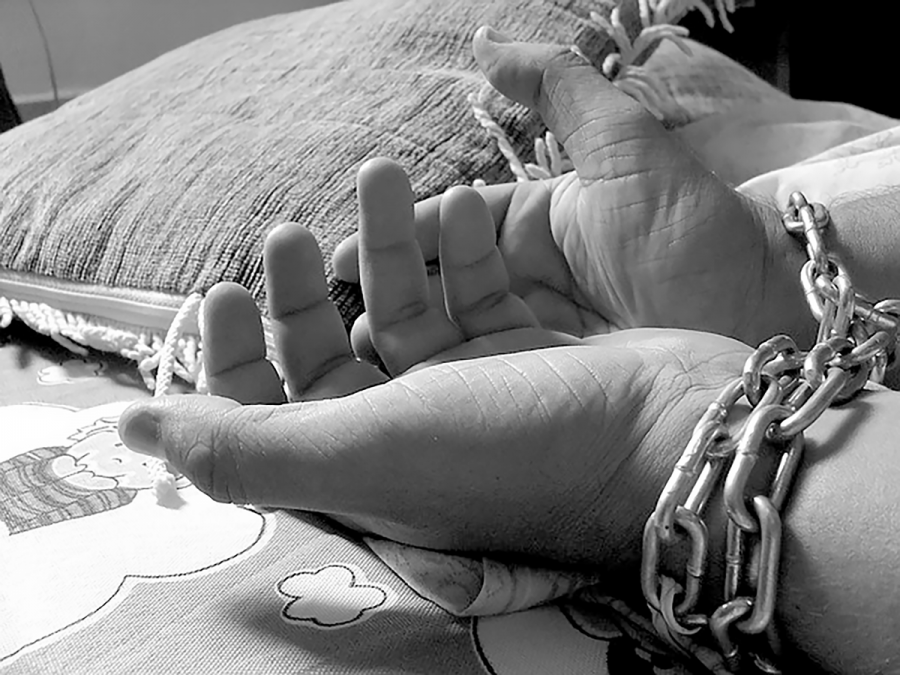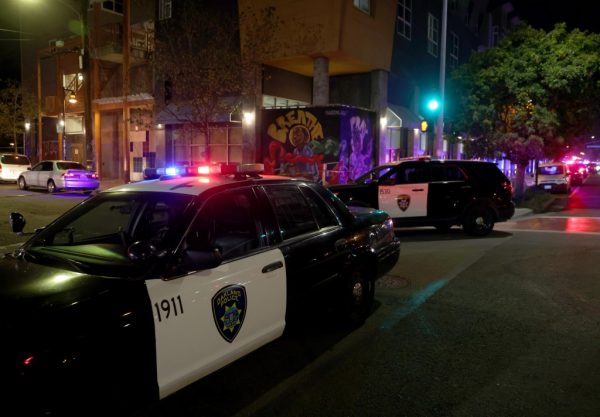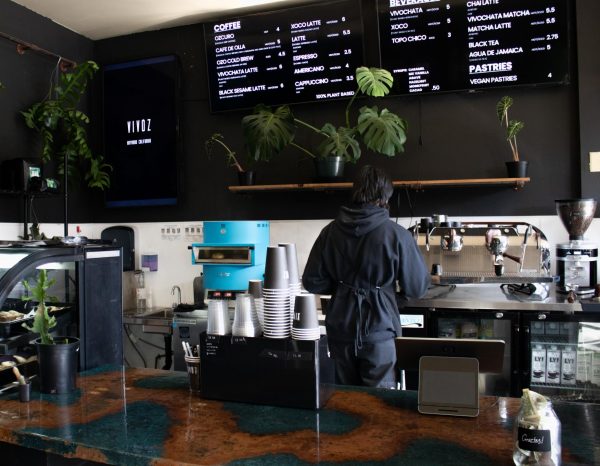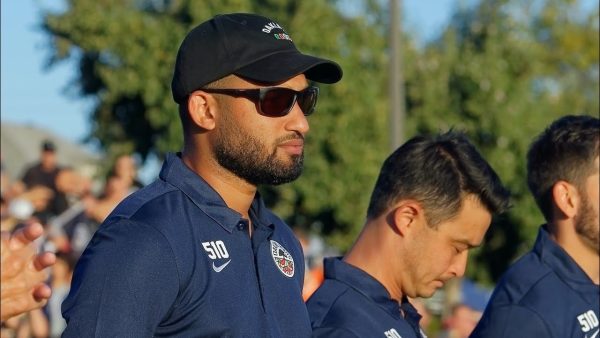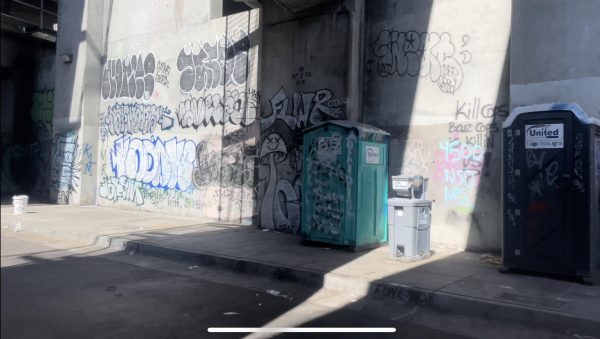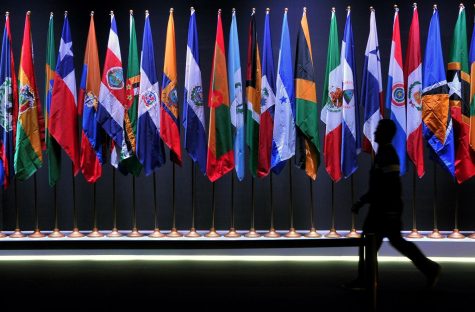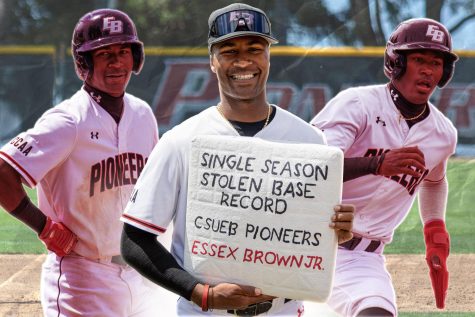Sex trafficking hits the Black Community
December 12, 2019
Sex trafficking has always been prevalent in America but over the past couple of months, African-American women are at a higher risk of being abducted, raped, sold or killed. Most trafficked women haven’t been able to tell their story because they’re afraid or don’t want to live in that moment any longer.
Alicia Watson, a young African-American woman from San Francisco recalls the day she was forced into prostitution.
“He told me I needed to make $1000 a night and if I didn’t, I wasn’t allowed to come back home until I did,” Watson said.
Watson is just one of the few victims across California that have the chance of being able to live after being trafficked while other women are still suffering in silence.
Watson recalls being a young teen who graduated in the class of 2013 with honors and loved to play soccer with her fellow teammates. Being an outgoing and popular kid, Watson was the life of the party and knew how to make friends easily, but what she didn’t know was that was going to quickly change.
“He said he saw me at one of my friend’s party but was afraid to speak to me then, so I didn’t think nothing of it. Just a guy that wanted to get my number after a party,” Watson said innocently.
Sexual predators and human traffickers have learned different techniques of luring women and gaining trust from their victims. Watson mentions how she was lured by her trafficker and the horrific conditions she had to endure while in the hands of these people.
The trafficker and Watson were in contact with each other for at least two months before she agreed to meet up with him for a movie date. An innocent first date turned into Watson’s worst nightmare and she regrets going out that night.
“After the movie he told me I needed to make the money back he spent on me at the movies and if I didn’t he would kill me. I literally had no choice I was so scared I just obeyed him,” Watson said.
The forms of sex trafficking and human trafficking are very different but they coexist with each other when it comes to preying on women, childen, and the innocent. Human trafficking is the act of enslaving and forcing someone to work under labor exploitation or to work as a servant.
Sex trafficking occurs when someone is forced into the commercial sex industry and held against their will by force, fraud, or coercion. The average age of children being exploited into the sex industry can be as young as 12 years-old. African-American victims are trafficked at higher rates, but there is a lack of media coverage, according to the U.S. Department of Justice.
Black women and women of color have been not only victims to the trauma they have experienced but we are also victims of the judicial system failing women of color to bring them back home.
In the discussion of sex trafficing, there is a term called The White Woman Syndrome or the White Girl syndrome, which was coined by Jada L. Moss, author of “The Forgotten Victims of Missing White Woman Syndrome: An Examination of Legal Measures That Contribute to the Lack of Search and Recovery of Missing Black Girls and Women”. It refers to the disproportionate sharing of news coverage when it comes to young, wealthy, and attractive white women and girls.
The disappearances of white women such as Laci Peterson and Natalee Holloway dominated the news media cycles of a missing person’s story over the years. However, there is not one high profile missing case regarding women of color.
“The lack of reporting missing brown and black women and girls in America continues to expose how black lives don’t really matter in this country and for the rest of the black women are constantly at risk every day,” says Emon Simmons, Intake Coordinator from Claire’s House in Oakland, Calif.
Claire’s House is a special home for young women and girls that have been victims of sex trafficking, where they can seek help and reclaim their lives. Victims of trafficking often need their loved ones, law enforcement, and the community to provide a safe place for them in order to get away from their captors.
Khalil Wheeler-Weaver, a young 23 year old African-American man from New Jersey, used dating apps to target Black women online for hook ups and sex workers and is now in jail for sexual assaulting and murdering three Black women. Wheeler-Weaver targeted Black women involved in sex work who were dealing with mental health issues or who were homeless. His thought process was that no one would notice they were gone, according to The Independent, a British online publication.
To hear a Black man state that Black women are not important when they go missing or end up dead speaks volumes to how our own black men do not support or feel obligated to stand up and protect black women.
The National Center for Missing & Exploited Children have recorded that over 64,000 African-American girls and women across the U.S since 2016. This is a concerning number of people missing and there is little to no media coverage for these victims. In some cases, Black girls are classified as runaways or homeless.
“The most disrespected person in America is the Black woman. The most unprotected person in America is the Black woman,” Malcolm X famously stated in his 1962 speech, “Who Taught You to Hate Yourself?”
To this day in 2019, Black women are still disrespected, underestimated, and overlooked by society. This classifies Black women as potential targets and are subjected to violence, sex exploitation and death.




